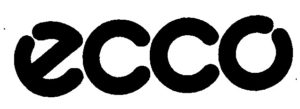To what extend can a business claim reputed trademark as a basis for infringement proceedings or for raising objections against another business’ trademark registration in Denmark?
A recent judgement of the Danish Maritime and Commercial High Court (the Court) between ECCO and EKKOfonden has given some further guidance on this matter, indicating that even in the case of highly reputed trademarks, the argument of taking unfair advantage of goodwill and reputation has its limits.
ECCO was founded in 1960 and is considered one of the leading manufacturers of footwear in Denmark. ECCO claims to be the third largest manufacturer of leisure footwear in the world and the fourth largest manufacturer of golf shoes. In 2012, ECCO sold approximately 20 million pairs of shoes worldwide through 4,000 concept stores in 90 countries. Apart from the manufacturing and sale of footwear, ECCO also arranges and hosts activities such as charity work. ECCO has registered a number of Danish and EU trademarks, including the wordmark “ECCO” and the following figurative marks in, amongst others, Classes 35 and 36:
In the case before the Court, ECCO sued the Danish Board of Appeals for Patents and Trademarks (the Board of Appeals) for upholding its decision on approving the registration of three different trademarks granted to the business EKKOfonden.
EKKOfonden is a Danish commercial foundation which was founded in 2013. EKKOfonden’s objective is, among others, to offer socio-educational services of all kinds, including e.g. accommodation, to Danish citizens who are in difficult positions and/or have special needs.
In 2014, EKKOfonden filed an application with the Danish Patent and Trademark Office (DKPTO) for the wordmark “Ekkofonden” and the following figurative marks in, amongst others, Classes 35 and 36:
ECCO objected to the registrations of the trademark applications, claiming that the trademarks were likely to cause a risk of confusion with ECCO’s reputed trademarks and would take unfair advantage of or be detrimental to ECCO’s goodwill and reputation.
In 2015, the DKPTO decided in favour of EKKOfonden, permitting the registration of the three trademarks. The decision was subsequently upheld by the Board of Appeals.
The Board of Appeals based its decision on the grounds that, from an overall assessment, the wordmarks are visibly different and that EKKOfonden’s services cater specifically to people with special needs. In addition, the Board of Appeals found that the word “ekko” (the Danish word for “echo” meaning the reverberation of sound) is a common Danish word to which ECCO cannot claim exclusive rights. The fact that ECCO, or any other business, involves itself in charity or foundation work cannot lead to a different result.
ECCO then brought the case before the Court, claiming the registrations to be denied on the grounds of infringement of ECCO’s reputed trademarks and brands within footwear and other activities such as charity work.
Within footwear, ECCO claimed to be not only reputed, but “highly reputed”, given that e.g. ECCO has been elected among the strongest brands in Denmark several times, and in 2014 was elected the 20th most valuable brand by the British ”Brand Finance” which was run in the Danish newspaper “Børsen”. On the list for 2017 by Brand Finance ECCO is listed as number 23 of Top 50 most valuable Danish brands in 2017, see the full list http://brandfinance.com/images/upload/bf_denmark_50_2017_locked.pdf.
For charity work, ECCO more specifically claimed to be known for its fundraising as well as participation in and arrangement of several annual events such as the “ECCO Walkathons” (a walking-event in which more than 450,000 people have participated in several countries since its introduction in 1999), and the “ECCO Walk In Style Awards” (an event which pays tribute to women involved in charity work).
The Court found that EKKOfonden’s trademarks did not infringe ECCO’s registered trademarks, given that EKKOfonden offers socio-educational accommodation and services whereas ECCO manufactures and sells mainly footwear products, which are non-related and non-competitive.
The Danish Maritime and Commercial High Court noted in this respect that even though ECCO also focuses on charity work and arranges charity events such as the “ECCO Walkathons” and humanitarian fundraising , such events and activities are listed under marketing costs in the accounts.
In addition, the Danish Maritime and Commercial High Court noted that the word “ekko” is a common Danish word with an independent meaning which is non-related to shoes and footwear.
On these grounds – and on the grounds stressed by the Board of Appeals – the Court upheld the decision of the Board of Appeals in its entirety, ruling in favour of EKKOfonden.
_____________________________
To make sure you do not miss out on regular updates from the Kluwer Trademark Blog, please subscribe here.





